#cold laser therapy treatment
Explore tagged Tumblr posts
Text
Cold laser therapy devices offer a unique approach to pain relief by tapping into the intricate mechanisms of nerve cells and pain receptors. Their ability to stimulate ATP production, regulate neurotransmitters, and influence pain receptor sensitivity makes them a promising tool for managing various types of pain. Scientific research and clinical studies continue to shed light on the intricate science behind cold laser therapy's pain-relieving effects, validating its place as a non-invasive and effective pain management solution.
#bcure laser therapy#Benefits of Laser Therapy#best cold laser therapy device for dogs#cold laser therapy at home#cold laser therapy device#cold laser therapy treatment
0 notes
Text
Pain Relief Clinic Laser therapy | Southwest
At Pain Relief Clinic Southwest, we understand how chronic pain can interfere with your daily life, limiting your mobility and overall well-being. That's why we offer Laser Therapy, a cutting-edge, non-invasive treatment designed to relieve pain, reduce inflammation, and promote healing.
What is Laser Therapy?
Laser therapy, also known as Low-Level Laser Therapy (LLLT) or Cold Laser Therapy, uses focused light energy to penetrate deep into tissues, stimulating cellular regeneration and reducing pain. This safe and effective treatment works by enhancing circulation, accelerating tissue repair, and decreasing inflammation, making it an ideal solution for managing a wide range of conditions.
Conditions Treated with Laser Therapy
Laser therapy has been shown to be highly effective for treating a variety of pain-related conditions, including:

#laser therapy#pain relief clinic#southwest pain relief#treatment#Laser therapy treatment#healthcare#health and wellness#health#clinic#Car Accident#Physical Recovery#Advanced Laser Therapy#chatham pain clinic#quick start pain relief#pain management#cold laser therapy
0 notes
Text
Tinnitus Laser Therapy: How It Works to Reduce Ringing in Your Ears
Tinnitus can be frustrating and, for many, life-disrupting. You may have heard about tinnitus laser therapy and wondered if it’s worth considering. This treatment uses low-level lasers aimed at improving symptoms by targeting damaged cells in the ear. With a growing interest in alternative therapies for tinnitus, I’ll break down the basics to help you understand how this approach works and what…

View On WordPress
#cold laser therapy for tinnitus#laser therapy for tinnitus#laser therapy for tinnitus reviews#low level laser therapy for tinnitus#red light laser therapy for tinnitus#tinnitus ear laser therapy#tinnitus laser therapy#tinnitus laser treatment reviews
0 notes
Text
Laser Treatments for Pet Arthritis

As pets age, arthritis can become a painful and limiting condition that affects their quality of life. If you’ve noticed your furry friend slowing down or struggling to move comfortably, laser treatments might be the solution you’re looking for. These non-invasive alternative pet therapies use focused light to stimulate healing, reduce inflammation, and alleviate pain. With the growing popularity of laser treatments for pet arthritis, many pet owners are turning to this effective option to provide relief without the need for invasive procedures or medications. In this article, we’ll explore how laser therapy works, its benefits for pets with arthritis, and why it’s becoming a go-to choice for improving your pet’s mobility and overall well-being.
Our Laser Treatment Veterinary Services
Targeted Pain Relief with Laser Therapy
Laser treatments offer targeted pain relief for pets suffering from arthritis. By focusing light energy on the affected areas, it stimulates natural healing, reducing inflammation and alleviating pain. This non-invasive treatment is ideal for pets who may be sensitive to traditional medications, offering a safe and effective solution to manage their condition.
Improved Mobility for Active Pets with Laser Therapy
Arthritis can significantly impact your pet’s mobility, but laser therapy can help restore their freedom of movement. By improving circulation and reducing stiffness in the joints, this treatment enhances flexibility and comfort. Over time, it enables pets to enjoy their favorite activities again, from walks to playtime, without the discomfort of arthritis.
Laser Therapy for Pets is a Fast, Painless, and Drug-Free Solution
Laser therapy is a quick, painless, and drug-free alternative to traditional treatments for pet arthritis. There are no injections, no long recovery periods, and no harmful side effects. The therapy is completely non-invasive, allowing your pet to relax during sessions while experiencing relief from pain and inflammation in a safe, natural way.
Long-Term Benefits for Pets Joint Health
Beyond providing immediate relief, laser therapy offers lasting benefits for joint health. By reducing chronic inflammation and stimulating tissue regeneration, it helps repair damaged joints over time. This ongoing healing process can slow further degeneration, ensuring your pet enjoys long-term comfort and mobility, enhancing their quality of life and longevity.
How Laser Therapy Eases Pain in Arthritic Pets
Laser therapy for pets works by using focused light to penetrate deep into tissues, stimulating the cells to promote healing and reduce pain. For arthritic pets, this process helps to reduce inflammation, improve circulation, and encourage cellular repair in damaged joints. The result is often a noticeable reduction in discomfort, allowing pets to regain more mobility and feel more at ease in their daily activities.
Additionally, laser treatments are non-invasive, making them an ideal option for pets who may be wary of more invasive treatments or medications. Many pet owners report seeing improvements in their pets’ overall comfort, as laser therapy not only targets the affected joints but also helps to relax surrounding tissues. This holistic approach offers significant relief for pets suffering from arthritis without the need for heavy painkillers or surgery.
The Science Behind Laser Treatments for Pet Arthritis
Laser therapy for arthritis relies on the principle of photobiomodulation, where specific wavelengths of light stimulate the cells’ natural healing abilities. This light penetrates the skin and reaches the affected joint tissues, accelerating cellular processes like collagen production and cell regeneration. By improving the health of the tissues surrounding the arthritic joints, laser therapy works to reduce pain and swelling, while also improving joint function.
This therapy is based on solid scientific research that shows how light can help reduce inflammation at the cellular level. When used consistently, laser treatments can significantly enhance your pet’s mobility, allowing them to engage in normal activities like walking or playing. With its ability to target inflammation and promote natural healing, laser therapy has become a favored alternative to more invasive treatments for pets with arthritis.
What to Expect During a Laser Treatment Session for Your Pet
During a laser treatment session, your pet will be comfortably positioned while the veterinarian or trained specialist uses a handheld device to apply targeted light to the affected areas. The light is typically emitted in short pulses, each lasting just a few minutes. Your pet may feel a soothing warmth during the session, but the treatment is painless and relaxing. Most pets remain calm throughout, making it a low-stress experience for both the pet and their owner.
The number of sessions required will depend on your pet’s individual condition, with some pets showing improvement after just a few treatments. Each session typically lasts around 15 to 30 minutes, and your veterinarian will provide a treatment plan that aligns with your pet’s needs. Many pet owners find laser therapy to be an easy, non-invasive way to help their pets live more comfortably with arthritis.
Is Laser Therapy Safe for Pets with Arthritis?
Yes, laser therapy is generally considered safe for pets with arthritis, especially when performed by a trained professional. The treatment uses low-level light that is non-invasive and does not require anesthesia or sedation, reducing the risks typically associated with more aggressive treatments. Laser therapy is designed to target specific areas and stimulates the body’s natural healing processes, rather than introducing any harmful substances or stress on your pet’s body.
As with any treatment, it’s important to discuss your pet’s specific health needs with a veterinarian before beginning laser therapy. In rare cases, certain conditions may make laser therapy less suitable. However, for most pets with arthritis, laser treatments are a safe and effective way to manage pain and improve mobility without significant side effects or complications.
Comparing Laser Therapy to Traditional Arthritis Treatments for Pets
Laser therapy provides a modern, non-invasive alternative to traditional arthritis treatments for pets. Unlike medications, which can often cause side effects such as gastrointestinal issues or long-term dependency, laser therapy works by enhancing the body’s own healing abilities. It offers a targeted approach to pain relief without the risks associated with heavy painkillers or surgical procedures, which can involve longer recovery times.
Additionally, laser therapy has fewer risks and less discomfort compared to surgery or injections, which can be intimidating for both pets and their owners. While traditional treatments may focus on masking symptoms, laser therapy addresses the underlying inflammation and promotes tissue repair, offering long-term benefits. As a complementary option, laser therapy can be combined with traditional treatments for even better results.
How Often Should Your Pet Receive Laser Treatment for Arthritis?
The frequency of laser therapy treatments for pets with arthritis can vary based on the severity of their condition and how they respond to the therapy. In general, most pets start with a series of treatments spaced a few days apart, gradually tapering off as their symptoms improve. For pets with more severe arthritis, frequent sessions might be necessary in the beginning, followed by maintenance treatments to keep symptoms under control.
Your veterinarian will provide a personalized treatment plan that is tailored to your pet’s specific needs. They will monitor your pet’s progress and adjust the frequency of sessions as necessary. Many pet owners find that regular treatments offer significant improvement, helping their pets to move more comfortably and enjoy a better quality of life overall.
Find a Trusted Professional for Your Pet’s Laser Treatment Today
If you think laser therapy could be the right choice for your pet, it’s essential to find a trusted professional who specializes in this treatment. Look for a veterinarian with experience in using laser therapy for arthritis in pets, and ask about their approach and track record with successful outcomes. A reputable clinic will have the proper equipment and knowledge to provide safe and effective treatments tailored to your pet’s specific condition.
Scheduling an initial consultation can help you determine whether laser therapy is the best option for your pet. During this visit, the veterinarian will assess your pet’s arthritis and discuss the potential benefits of laser treatment, ensuring that you’re making an informed decision about your pet’s care.
Cherokee Animal Hospital Offers Laser Therapy for Pets in Canton, Georgia
Laser treatments offer a safe and effective way to manage arthritis pain in pets, helping them regain comfort and mobility. The non-invasive nature of the therapy ensures that your pet can experience relief without the need for surgery or heavy medications. With regular sessions, many pets show significant improvement in their quality of life, moving more freely and feeling less discomfort. If your pet is struggling with arthritis, laser therapy could be a valuable addition to their treatment plan. Reach out to a trusted veterinarian today to discuss how laser treatments can benefit your pet and help them live their best, most active life. Don’t wait – your pet deserves to feel their best!
Cherokee Animal Hospital
2424 Marietta Hwy, Canton, GA 30114
770-479-6505
Facebook
YouTube
X
Instagram
LinkedIn
Yelp
Google
#24-hour veterinary hospital#Affordable pet care#Animal surgery services#arthritis treatment for pets#cold laser therapy for pets#Emergency vet clinic#laser therapy for cats#laser therapy for dogs#laser treatment for pet arthritis#Local vet hospital#non-invasive pet arthritis treatment#pet arthritis pain relief#Pet health checkups#pet joint pain relief#pet pain management#Pet vaccination clinic#veterinary laser therapy
0 notes
Text
Quit Smoking For Good With Laserquit’s Laser Therapy Program
Have you ever tried to quit smoking and failed? Quitting smoking is never easy, but with LaserQuit’s laser therapy program, it could be. LaserQuit is offering its smoking cessation program in Abbotsford and Burnaby, using Laser Therapy as a part of our treatment program to help you quit smoking for good.

LaserQuit’s laser therapy program is a safe and effective way to help you quit smoking using cold laser therapy. As the laser is applied to certain acupuncture points, it sends low-level light energy to those areas that can help to reduce your cravings and urge for cigarettes. This can help to reduce your stress levels, reduce withdrawal symptoms, and even make it easier for you to break the mental habit of smoking.
Beyond just physical addiction, our Laser Treatment To Quit Smoking in Abbotsford also helps you to break any mental habits that can be associated with smoking. This includes the hand-to-mouth motions of lighting and puffing, as well as any rituals that can be associated with smoking, such as always taking a smoke break after a meal. Laser therapy also has other benefits, such as improving your overall well-being. Many people who have quit smoking with the help of our laser therapy program have reported a decrease in stress levels, increased energy levels, better sleep, and improved overall health.
If you’re looking for an effective way to quit smoking, then LaserQuit’s laser therapy program is an excellent choice. In just a few weeks, you can be on your way to being smoke-free for good. It’s quick and easy, and it’s been proven to be one of the most effective ways to help you quit smoking.
If you’re interested in finding out more about our program, we offer free consultations in Abbotsford and Burnaby. We’ll be able to answer any questions you have, and help you to create a personalized tailored quit smoking plan. Are ready to take the first step and finally quit smoking, then why not try LaserQuit’s laser therapy program? With our help, you could be smoke-free in just a few weeks. Call us at (250) 571-9879 and visit our official website at https://laserquittherapy.ca/ for more information.
#Laser To Quit Smoking#Cold Laser Therapy#Laser Treatment To Give Up Smoking#Smoking Addiction#Smoking Cessation Surrey
0 notes
Text
Dogs are often referred to as man's best friend, and as responsible pet owners, it's our duty to ensure their well-being, including their dental health. Canine dental care is not just about keeping your furry companion's breath fresh; it's about preventing painful conditions like gingivitis and periodontal disease that can lead to serious health issues if left untreated. In recent years, there has been a significant advancement in veterinary medicine that's changing the game when it comes to canine dental care: therapeutic laser therapy.
#bcure laser therapy#bcure laser treatment#cold laser therapy device#dog gingivitis home treatment#how to cure gingivitis in dogs#therapeutic laser for dogs
0 notes
Text
Cold Laser Therapy Near Me
Explore the benefits of cold laser therapy near you with Aaron Orpelli, DC. As a trusted expert, Dr. Orpelli offers cutting-edge cold laser treatments to alleviate pain and promote healing. Experience the power of non-invasive therapy for various conditions under the care of Aaron Orpelli, DC.

0 notes
Text
Get relief from your pain with cold laser therapy
Cold laser therapy may be worth a try. To learn more, contact Accident and Wellness Care Center today. We offer cold laser therapy murfreesboro at our office in accident and wellness care center.
#Cold Laser Therapy Murfreesboro#cold laser therapy murfreesboro#ultrasound murfreesboro#dry needle therapy murfreesboro#dts therapy murfreesboro#sprains and strains treatment murfreesboro
0 notes
Text
#laser clinic#chiropractic treatment#cold laser therapy#filler milano#biorivitalizzazione#filler viso milano#botulino milano#laser a diodo milano#icoone#biorivitalizzazione viso
1 note
·
View note
Text
Why Do We Love to "Hate" the Unlikable Female Heroine? | A Discussion About Every Reader's Favorite Guilty Pleasure
To read more posts like this, visit my blog: https://newbookcatsreads.blogspot.com/
A reader's favorite guilty pleasure is assuming that the sharp wits, scathing remarks, and morally questionable actions of fictional characters are aimed directly at us. These books we have associated as our safety nets do anything to catch us during jarring experiences and the emotional turmoil that typically follows.
For instance, every time I revisit Cassandra Clare's The Infernal Devices trilogy where she showcases a love triangle with only right angles, I consistently brace myself from Will Herondale's cold remarks veiling his (obvious) affection for Tessa Gray and any cruel schemes completed by Jessamine, Nathan, Magister or other villains--not that the Magister's manipulation of his soul-fueled robot army sucks away any remorse I have toward his sorrowful past lending to his desires for revenge against Shadowhunters. Still, their flaws feel personal, their choices oddly intimate, and somehow, their imperfection makes the story better.
Moreover, despite the immediate hatred we are expected to feel for villains and their callous schemes, there are surprisingly many literature heroines widely disliked by readers--and by extension, the family members of said readers who have to listen to thorough dissections of the heroine's role in the story and cry spells resulting from the heroine's ultimate sacrifice to rescue their loved ones from poisoned cake.

And, while Joey undeniably reflects every reader in this scenario, I would also like to express how not-sorry I am for my past and future actions regarding my favorite novels and character.
Still, this begs the question: why do we love to hate these unlikable heroines, particularly the sharp-tongued, self-centered, and sometimes just plain mean ones that somehow steal the spotlight and keep us turning the pages until the night turns into day?
Warning: All of the declarations written by me and featured on this blog are my opinions. I'm an amateur literature dissectionist; further, I barely know how to write a story without one or many plot holes. Please respect my opinions. Moreover, if you share an opinion in the comments, I will respect your takes--even the burning hot ones--regardless of how I personally stand on an issue. If you come across a statement that you have an issue with, I highly recommend for you to consult your local librarian or book club to discuss incidental symptoms of hotheadedness, insomnia, snarky comments, frequent book hangovers, and possible death. This post is not recommended as book therapy or is an associated treatment for people with high prevalence of the above symptoms, and it is recommended for all readers to proceed and share at their own risk. Thank you!
First, let’s address societal expectations. Women in fiction are often expected to be likable, relatable, or at the very least, redeemable. For example, Sansa Stark from George R. R. Martin's Game of Thrones is everything expected of a young woman readied to marry the heir to the Seven Kingdoms: obedient, soft-spoken, and well-mannered albeit a rare occurrence of sass reserved for her siblings. However, throughout a series of torturous character-defining moments as Martin's story progresses, Sansa transforms into a woman that readers strongly admire yet fear. Strong-willed, resilient, and loyal in favor of Daenerys and her brother Jon's resistance against the presently-ruling Lannister family, she earns both fans and enemies; however, her power-hungry tendencies and ambitious attitude show another complexity to her character--even allowing readers to outspokenly crave a downfall in her plans.
Another instance would be when Celeste in Kiera Cass’s The Selection series is painted as the vain and ruthless "mean girl" who is laser-focused on attaining Prince Maxon's heart and the deeply coveted title as Queen of Illéa. But as the trilogy progresses, Celeste surprises readers by risking her life to protect Maxon and America, her competitor. Slowly through the trilogy, her vulnerabilities are revealed, suddenly transforming her from a villain we loved to hate to someone we grudgingly admire. Similarly, Nina Zenik from Leigh Bardugo’s Six of Crows is introduced as unapologetically brash and self-assured. Despite included as a protagonist of the story, she undeniably embodies traits that readers often find polarizing, making her a magnet for both admiration and critique from readers. These are classic cases of an unlikable heroine being redeemed by layers of complexity and growth.
Meanwhile, male characters, can brood, break hearts, and make all kinds of morally questionable choices while still being applauded as society's next "bookish boyfriend" and excused as “complicated” or “nuanced.” So when an author drops an unlikable female heroine into our laps, she feels refreshing.
But here’s the thing: unlikable heroines reflect real women. Not everyone is a people-pleaser or a cinnamon roll who always says the right thing at the right time. And, let’s be honest, who wants to be?
Unlikable heroines challenge the idea that women must be palatable to be worthy of storytelling. Instead, they showcase flaws in ways that resonate with readers who might see themselves in the unfiltered messiness.
Take, for instance, Cersei Lannister from Martin's Game of Thrones. Yes, despite not being a heroine, Cersei's story is a masterclass in making readers simultaneously love and hate a character. Her snark, cruelty, and morally questionable choices make her divisive. Yet, when her full intentions of keeping her family, especially her children, not only safe but alive in the midst of a dragon-led rebellion are revealed, many readers, especially those who are mothers or caretakers of a family member, suddenly see her in a new light. Still, this begs us to consider if Cersei as a bitter, vengeful, yet deeply loyal woman deserves a redemption arc or if she is irredeemable and should be punished with more than just rotten tomatoes.
Moreover, there’s a fine line between flawed and unbearable. When done well, unlikable heroines make us question our own biases.
Why does her ambition feel “too much” to me? Am I uncomfortable with her choices because they’re immoral or because they challenge societal norms?
But when done poorly, these characters turn into nothing more than plot devices for shock value or an author’s attempt at forced edginess, becoming caricatures overdressed in universally condemned values and unlikeable personality traits. For example, Storee from Megan Quinn’s How My Neighbor Stole Christmas is a prime example of this. On the surface level, she is quirky and sarcastic, traits that easily evoke adoration. But after further reading and analysis, her incessant snark crosses into grating territory, leaving some readers (ahem, me) rolling their eyes more than rooting for her. It’s a balancing act, and when that balance is off, even the most forgiving audience may find themselves not finishing that supposed "feel-good" story in lieu of reaching for another one.
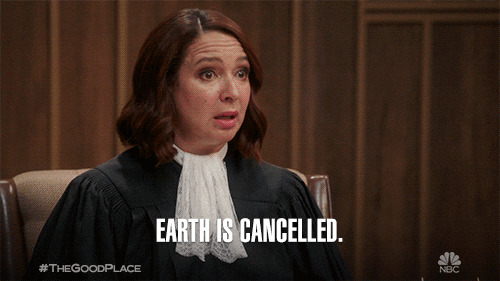
Still, I believe unlikable heroines have a place on our shelves. They force us to engage critically with our stories, question our assumptions, and maybe even confront our own unlikable traits. Moreover, as I have matured and been exposed to more complex pieces or stories including advanced topics, I have come to enjoy reading about morally gray protagonists--even so far as looking forward to their written presence. Albeit their misunderstood pasts or questionable intentions within their fictional universes, it is refreshing to encounter characters who are neither strictly virtuous or are perpetually untarnished by faults or temptations.
Albeit not a female heroine, it's refreshing to consider that even the holiest figure of them all, Jesus, in the Bible was admittedly tempted by the devil several times throughout His life and during His preparations. Moreover, He questioned His purpose and final sacrifice. These situations and similar ones dispersed throughout the Bible remind readers that absolute perfection is unattainable for anyone...even for the son of a deity.
And, returning to non-biblical figures, morally gray characters resonate with audiences, when written correctly, because they reflect this messy, intricate reality of humanity that is complicated, often selfish, and undeniably flawed. Everyday, we face that perfection is strictly an illusion, and these characters remind us that these slight imperfections can be captivating, successfully driving a story forward and establishing a character as a timeless literary figure and, oftentimes, an inspiration for others. The complexities of these characters not only challenge us to question our own moral compass but to find empathy in the most unexpected places. And, that includes the countless number of family members and friends I entrusted to hear my most vulnerable thoughts about these characters.
And on a higher note, these characters are fun to include in thoughtful debates and deep philosophical discussions when it comes to values and beliefs--and who doesn’t love a good bookish debate with both readers and non-readers alike?
So, what’s your take? Are unlikable heroines misunderstood gems or literary landmines? Albeit YOUR literal perfection, which characters or literary scenes encouraged you to reflect on your own morals or biases? Is it possible for these unlikable heroines (like Cersei Lannister) to earn redemption from readers, or what are some common traits and actions that make this option widely opposable (such as in the case of the Magister)? Leave your hot takes below (bonus points if you can name a heroine you loved and hated at the same time). Let’s keep this discussion spicy--just like our favorite morally gray protagonists--in the comments below or via my social media accounts.
Love,
Nicole
Goodreads | Instagram | Twitter | Tumblr
#books#book review#reading#review#blogger#bookblogger#book#reader#bookblr#booklr#female protagonist#male protagonist#bookish#books and reading#bookworm#book blog#booklover#bibliophile#biblioteca#books & libraries#librarians#unlikeable#unlikeable heroines#game of thrones#george rr martin#girlblogging#goodreads#cersei lannister#sansa stark#daenerys targaryen
3 notes
·
View notes
Text
Toe fungus laser treatment has emerged as a modern solution to a persistent problem. However, its suitability for your individual situation depends on various factors, including the severity of the infection, the cost considerations, and the time commitment you can afford. By carefully evaluating these aspects and consulting with a medical professional, you can make an informed decision about whether toe fungus laser treatment is the right choice for you. Remember, your foot health is paramount, and exploring all available options will empower you to choose the best course of action for your well-being.
#bcure laser therapy#Benefits of Laser Therapy#cold laser therapy at home#cold laser therapy for turf toe#cold laser therapy treatment#laser treatment for toe fungus
0 notes
Text

Well- If you're writing about a character with burn scars, the details right matters alot.
Burn scars aren't just a visual trait; they come with physical, emotional, and social challenges that shape a person’s daily life.
If you want your portrayal to feel authentic, here are some things to consider.
First, burns vary in severity.
A first-degree burn, like a mild sunburn, won’t leave lasting scars.
Second-degree burns can, depending on depth and healing.
Third-degree burns, which destroy deeper layers of skin, almost always leave significant scars.
Fourth-degree burns extend to muscle and bone, often requiring surgeries like skin grafts.
If your character has major burn scars, they likely underwent medical treatments, faced mobility challenges, and had to manage long-term skin care.
Burn scars don’t just “heal and go away.” They can be tight, raised, discolored, and sometimes painful for years.
Hypertrophic scars stay within the original burn area and can feel thick and rigid.
Keloid scars go beyond the burn site and grow over time.
Contracture scars, common with deeper burns, can limit movement, especially if they form over joints.
If your character has scars on their hands, face, or neck, they might struggle with flexibility, facial expressions, or even simple tasks like gripping objects.
Healing Process
The healing process isn’t just about scars fading. Burn survivors often deal with chronic itching, sensitivity to heat and cold, and the need for moisturizers, compression garments, or silicone treatments.
Some undergo laser therapy or surgery to improve mobility or appearance, but complete "removal" is unrealistic.
Skin grafts can help, but they leave their own scars and don’t fully restore normal skin texture.
Socially, people with burn scars face reactions ranging from curiosity to outright rudeness. Strangers might stare or ask intrusive questions. Some assume scars are from accidents, self-harm, or abuse, making conversations awkward or painful. Others might offer unwanted advice—suggesting miracle creams or home remedies that don’t actually help.
If your character is self-conscious about their scars, they might cover up, avoid certain situations, or struggle with confidence. If they’re comfortable with them, they might develop a tough exterior, educate others, or challenge beauty standards.
Psychologically, burn survivors often deal with more than just physical recovery. Trauma, PTSD, body image struggles, or a changed sense of identity are common. Some people accept their scars as part of their journey, while others struggle with them for years.
Your character’s reaction depends on their, support system, and experiences.
If you want your portrayal to feel real, avoid clichés. Scars don’t have to define a character, but they do affect their life. They aren’t just a “tragic backstory” feature or something that instantly gives someone a hardened personality.
NOW, it's time to talk about sea salt water thing......
I resesrched alot but couldn't find a better answer other than this...
This is a big misconception
People say the minerals in seawater speed up recovery, smooth out scars, or even “fade” them over time.
No doubt, medical-grade saline solutions are used in hospitals for wound care but raw sea salt and ocean water aren’t the same.
The reality is "exposing burn scars to seawater can be risky".
The ocean isn’t sterile; it’s full of bacteria, pollutants, and irritants that can cause infections, especially if the skin is still healing.
Salt itself is also drying, which can make scar tissue feel tighter and more uncomfortable. Instead of soothing the skin, it often leads to irritation, redness, and even more itchiness.
A study conducted in Western Australia's Gascoyne region examined 28 patients with marine-associated wound infections. The findings revealed that 64.3% of these wounds were infected with Staphylococcus aureus, and 32.1% with Vibrio species. Notably, 39.3% of the infections were polymicrobial, involving multiple bacterial species. ( resource)
Some other myths
Some people believe scrubbing scars aggressively will “remove” them, but that just damages the skin further.
Others swear by home remedies like lemon juice, claiming it lightens scars, but all it does is cause stinging and potential burns from sun exposure.
Oils and herbal creams are often promoted as miracle cures, but most don’t penetrate deep enough to change scar tissue.
Remember that hydration and proper care can improve a scar’s appearance, no natural ingredient can erase one completely. The best approach isn’t following every home remedy suggestion—it’s understanding what actually works and what might make things worse.
So do your research too before using aby home remedy.
About me | Free resources | blog
4 notes
·
View notes
Text

Chapter 4: Medical Esthetic Procedure Contraindications

So you’re considering getting some medical esthetic procedures done. That’s hot! But before you schedule an appointment or consultation here’s a quick guide of contraindications to be aware of!!

What is a Contraindication?
A contraindication is a condition we look for in the medical field that serves as a reason to not continue forward with a medical treatment due to potential harm the treatment may cause to a patient!
Laser Hair Removal:


Herpes and Cold Sores: Can you get laser hair removal with herpes or cold sores? Yes! But only if there is not an active breakout. We do warn the clients that the lasers we use are powerful enough to cause a herpes or cold sore breakout to occur so please proceed with caution!
Retinol: Use of Retinol’s are a huge no no! It can cause severe damage, burning or scaring if a laser is used! If you are on Retinol please stay off of it for 1 week before your laser hair removal procedure.
Seizures + Epilepsy: If you have a history of epilepsy please refrain from getting any laser or light treatment as it can induce seizures.
Bacterial Skin Infections: Infections can spread to other parts of the body if a laser is used.
Impetigo: This highly contagious superficial skin infection is something we as your medical esthetician should be aware of before continuing with treatment.
Cellulitis: This infection of the dermis and subcutaneous tissue should be cleared before you continue with any laser or light therapy.
Folliculitis: Laser treatments are not performed in areas of folliculitis but several hair removal lasers have been approved by the FDA for pseudofolliculitis barbae treatment.
Fungal Infections: Ringworm and Yeast Infections can not be treated with laser or light therapy until cleared.
Viral Infections: Active viruses are considered major contraindications for laser and light therapy.
Shingles: If there is an active outbreak laser treatment will not be used.
Common Skin Warts (HPV): Although some lasers are used to remove persistent warts, they are still considered contraindications.
Atopic Dermatitis (Eczema): You will not be disqualified as a candidate for laser treatment, unless the outbreak is in an area of proposed treatment.
Open Lesions, Rashes and Sunburns: This includes open lesions from picking at the skin. Any unknown lesions or rashes will be considered contraindications. Sunburns are known to disrupt the skin barrier and are considered contraindications. Any suspicious lesions should always be evaluated by a physician prior to treatment.
Accutane: You must be off of Accutane for at least six months to a year, depending on a physician’s  preference prior to treatment with laser or light therapy.
Immediate Post-Operative Face Lift, Blepharoplasty or Neck Lift: Treatment is avoided for clients who are in post op from these treatments until a physician has given approval for laser or light treatment. 
Pregnancy and Lactation: Pregnancy and lactation are considered contraindications women who are pregnant or lactating, should wait after pregnancy + breastfeeding so a child will not be exposed before beginning or continuing laser or light treatment. 
Laser Tattoo Removal:
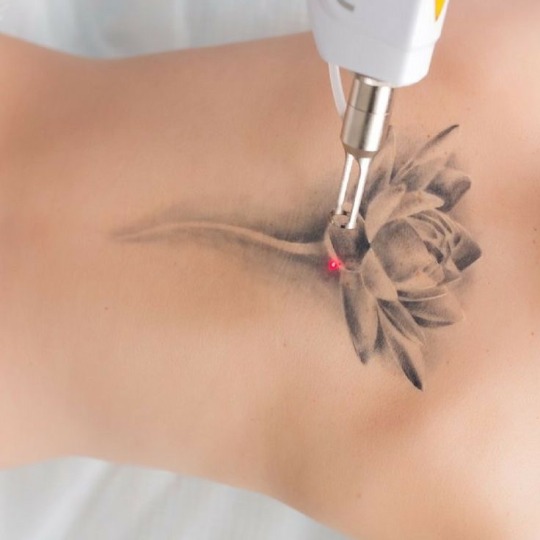
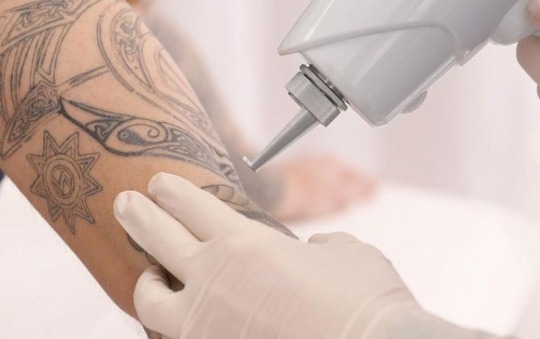
Laser tattoo removal shares the same contraindications as laser hair removal.
Red Tattoo Ink: Red tattoo ink is known to be allergenic. If you have experienced an allergic reaction to red tattoo ink, be aware that another allergic reaction may occur if a red ink tattoo is being removed by laser. 
Retinol + Accutane
Pregnancy and Lactation
Bacterial Infections
Viral Infections
Fungal Infections
History of Epilepsy or Seizures
Open Skin Lesions, Sunburns and Rashes
Microneedling:

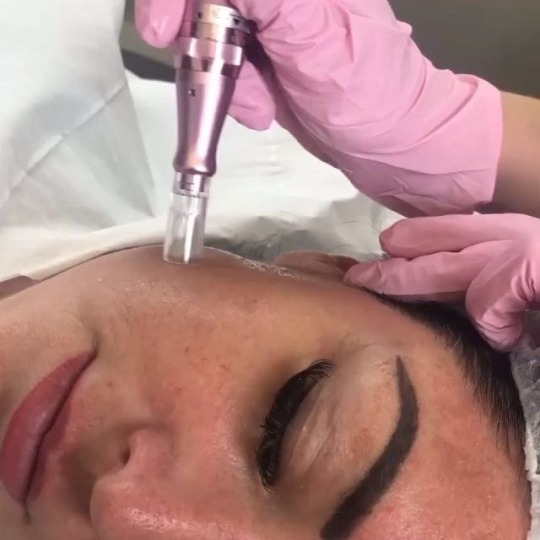
Herpes + Coldsores: Please wait until an outbreak is fully healed! Estheticians can avoid microneedling the mouth area if you do have an outbreak but it is best to wait until the outbreak is fully healed to avoid any spreading.
Active Acne: Areas of active acne can be skipped over but if there is an all over outbreak it is best to wait.
Rosacea: Clients with vascular rosacea can receive treatment, but not pustular or nodular rosacea wait until the information has settled.
Atopy, Asthma, Hay Fever and Allergies: Any patient with a history of allergies maybe prone to urticaria, after needling due to the release of histamines.
Anticoagulants: Any supplements, known to prolong, bleeding time, may not necessarily be discontinued from treatment, but the risk of bruising increases.
Drugs and Supplements Associated with Photosensitivity: Any drug and supplement that can cause photosensitivity including Accutane is considered a contraindication. 
Fitzpatrick III and Above: Those with darker skin tones are not disqualified from treatment but it should be known that skin will appear puffy, bruising, if present might be visible in thin skinned areas and erythema (skin redness)  when super-imposed on brown, appears much darker. Patience with melasma or post. Inflammatory hyperpigmentation must understand that lesions will appear darker for several months before improving.
PSA: There are certain ingredients to avoid using when it comes to dermal needling. Ingredients to avoid include preservatives, fragrances, emulsifiers, emollient acids, dyes, coloring agents, and UV filters 
Before receiving a dermal needling treatment, you may be asked by your provider about allergy or medication, history, blood pressure/medication, bleeding disorders, eczema, psoriasis, immune system disorders, keloid, scarring, major illnesses, heart conditions, anemia and a lot of other general medical questions.
Body Contouring
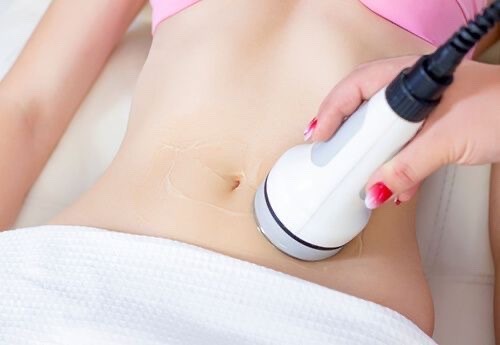
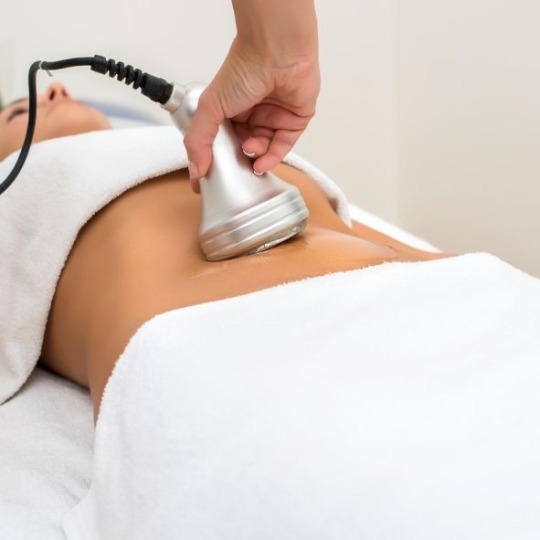
Pregnancy and Breast-Feeding
HIV/AIDS
All forms of Cancer
Undergoing Chemotherapy
Immunodeficiency
Lupus
High Blood Pressure
Uncontrolled Diabetes
Keloid Scarring
Excessive Pigmentation
Vein Inflammation
Steroid Medication
Chemical Peels + Laser Resurfacing
Sunburn
Recent Surgery or Scars: Wait 6 months
Open Lesions, Skin Diseases, Inflammation, Varicose Veins, Infection, Metal Implants, Metal Screws, Metal Contraceptive Coil + Prothesis/Silicone Implants: Area will be avoided
Antibiotics: Must wait until completed medication course
Depilatory Creams: Wait 2 weeks
IPL or Laser Treatment: Area that received laser or light therapy must wait 2 weeks before receiving body contouring.
Areas with Botox: Wait 3 months before receiving body contouring.
Areas with Dermal Filler: Wait 2 weeks before receiving body contouring.
Sun Tan: Will be avoided
Chronic Inflammation: Speak with your healthcare provider before proceeding forward with a body contouring treatment.
PSA: Before receiving body contouring, your hydration levels will be checked your body must be 40% or higher for your hydration level. Hydration levels below 40% can cause cat like scratch sensations when receiving body contouring. Which is why low levels of hydration are considered a contraindication and you must wait until your hydration levels are at 40% before receiving treatment.

30 notes
·
View notes
Text
Surgical Options in Cancer Treatment: Procedures and Recovery

Cancer surgery is a common and effective way to treat many types of cancer and the specialist who does these surgeries is a Surgical Oncologist.
Surgery involves removal of tumor and some surrounding healthy tissue to prevent the cancer from spreading or coming back. Surgery can also help diagnose, stage the type of cancer and will help in suggesting further treatment if needed based on staging of cancer (tumor, node, metastasis) and relieving symptoms of cancer.
Biopsy of the surgical specimen will be sent to Pathology and Depending on the report Oncologist may suggest further treatment.
Surgery will determine the following:
If you have cancer
Where the cancer is located
If it has spread or is affecting other organs in the body
Surgery can be performed in a doctor's office, clinic, surgery centre, or hospital. Where you go depends on the type of surgery and how much time you need to heal. Your surgery may require medication to block the awareness of pain, called anaesthesia. There are different types of anaesthesia depending on the type and extent of the surgery.
Types of Surgery
There are different types of surgery for cancer treatment, depending on the type, location, and stage of the cancer, as well as the patient’s preferences and overall health. Some of the most common types of surgery are:
Open surgery: This is the traditional type of surgery that uses a scalpel to make a large incision in the skin and access the tumour. Open surgery can remove large or deep tumours, but it may also cause more pain, scarring, and longer recovery time.
Minimally invasive surgery: This is a type of surgery that uses small instruments and tiny incisions to remove the tumour. Minimally invasive surgery can include laparoscopic surgery (using a thin tube with a light and camera) or robotic surgery (using a computer-controlled device). Minimally invasive surgery can reduce pain, bleeding, infection, and recovery time, but it may not be suitable for all types of tumours.
Specialised surgery: This is a type of surgery that uses special techniques or devices to destroy or remove cancer cells. Specialised surgery can include cryosurgery (using extreme cold), electrosurgery (using electric current), laser surgery (using light beams), or Mohs surgery (removing thin layers of skin cancer). Specialised surgery can be more precise, less invasive, or more effective for certain types of cancers.
Recovery from Surgery
The recovery from surgery depends on many factors, such as the type and extent of the surgery, the patient’s age and health status, and the possible complications or side effects. Some common aspects of recovery are:
Pain management: The patient may experience pain or discomfort after the surgery, which can be relieved by medication, ice packs, relaxation techniques, or other methods.
Wound care: The patient may need to keep the surgical site clean and dry, change dressings, apply ointment, or avoid certain activities to prevent infection or bleeding.
Physical therapy: The patient may need to do exercises or stretches to improve mobility, strength, or range of motion after the surgery. Physical therapy can also help prevent blood clots, swelling, or lymphedema (fluid buildup).
Follow-up care: The patient may need to have regular check-ups with the surgeon or oncologist to monitor the healing process, remove stitches or drains, test for signs of cancer recurrence, or adjust the treatment plan.
Surgery is an important option for many people with cancer. It can help cure, control, or improve the quality of life for patients with different types of cancers. However, surgery also has some risks and limitations that need to be discussed with the doctor before making a decision.
For more details click on the link 👇🏻 https://bit.ly/3osreVo
#ICANWIN#YESITSRAM#FightAgainstCancer#CancerAwarenessMatters#TogetherAgainstCancer#CancerWarriorsUnite#EmpoweredByHope#RaisingCancerAwareness#IgniteTheFight#ConquerCancerTogether#InspireHopeForSurvivors#CancerFreeFuture
49 notes
·
View notes
Text
Dermatologist
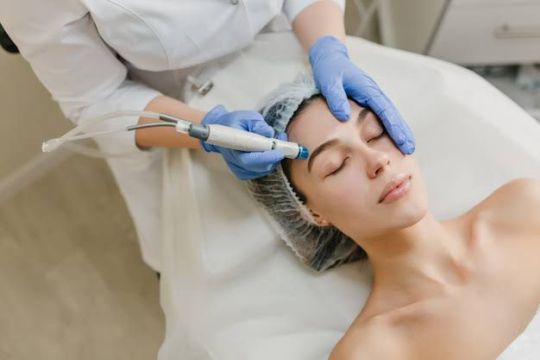
Dermatology
Dermatology is the medical discipline that is concerned with diagnosis and treatment and treatment diseases of the skin, hair and nails
in both children and adults. Specialists in dermatology are called Dermatologist.
Dermatology involves but is not limited to study, research, and diagnosis of normal and disorders, diseases, cancer, cosmetic and ageing conditions of the skin, fat, hair, nails and oral and genital membranes, and the management of these by different investigations and therapies, including but not limited, topical and systemic medications, dermatologic surgery and dermatologic cosmetic surgery, immunotherapy, phototherapy, laser therapy, radiotherapy and photodynamic therapy.”
Medical professionals
Best cardiology Clinic in Gaya Dermatologists treat patients with common conditions, like acne or wrinkles, but they also can treat skin cancer and other chronic or painful skin diseases. Dermatologist might perform tasks like examining patients on how to take care of their skin.
Education and Training
It includes an undergraduate pre medical degree, general medical training, internship and dermatology specialization training. You must have high NEET UG score. To complete four years of medical school, you must enroll in an MBBS program. The next stage is obtaining a one-year dermatology internship or another field. Following an internship, three years of residency or continuing training in dermatology is also required.
Skin Condition
Acne
Hives
Warts
Fungal nail infection
Cold core
Candidiasis
Athlete’s foot
Cosmetic Dermatology
Cosmetic dermatology is a specialized field of dermatology that focuses on procedures that improve appearance of the skin, particularly on the face and neck. It is also known as aesthetic dermatology or aesthetic medicine.
Skin Cancer Screening
A visual self-exam by the patient and a clinical examination by the health care provider may be used to screen for skin cancer. Best oncology Clinic in Gaya During a skin exam a doctor or nurse checks the skin for moles, birthmarks, or other pigmented areas that look abnormal in color, size, shape, or texture.
Hair and Nail Disorders
Most common Hair problems
If you are experiencing issues with your hair or nails, it is important to see a dermatologist. At water’s Edge Dermatology, our providers have years of experience treating hair and nail problems.
Most common Nail Problems
Our Nails are important. They protect and support the tissues in our fingers and toes. And they allow us to scratch an itch.
But nail problems are common. As we age, nails thicken and become more susceptible to issues such a fungal and bacterial infections. Often these issues are nothing to worry about, but sometimes a nail problem can signal and underlying disease.
Allergies and Skin Sensitivities
The most common allergic skin conditions are atopic
Dermatitis (eczema), allergic contact dermatitis (rash where allergen touched the skin), urticarial (hives), and angioedema (swelling). Hives and swelling often happen together, and may suggest a serious and life threating allergic reaction.
Preventive Care
Some of the most important preventive measures are, avoiding too much sunlight, applying sunscreen before going out, covering up skin in the sun, and avoiding tanning booths. Best neurology Clinic in Gaya
Research and Advancements
Research advancements in dermatology have brought about transformative changes in the diagnosis, treatment, and management of various skin conditions. Innovation in diagnostic tools, therapeutic modalities, and digital health technologies have significantly improved patient care.
Patient Education
By Definition, patient education is the process of influencing patient behavior and producing the changes in knowledge, attitudes and skills necessary to maintain or improve health through the provision of information and the teaching of patients.
Get in Touch
Contact :- 9117999911
Website:- https://www.alwaysdial.com/
Mail Id :- [email protected]
#hair care#dermatology clinic#dermatolist#skin care#dermatology#healthyskin#skin treatment#skincare tips#glowingskin
2 notes
·
View notes
Text
Osteoarthritis of the elbow can significantly impact a dog's quality of life, causing pain and hindering their ability to enjoy normal activities. Recognizing the early signs of the condition, understanding its progression, and implementing a comprehensive management plan are essential for maintaining your dog's well-being. A combination of medical interventions, lifestyle adjustments, physical therapy, and alternative therapies like laser light therapy can work synergistically to provide relief and enhance joint function.
#bcure laser treatment#best cold laser therapy device for dogs#dog elbow dysplasia natural treatment#elbow arthritis in dogs#laser light therapy for dogs#osteoarthritis of the elbow
0 notes